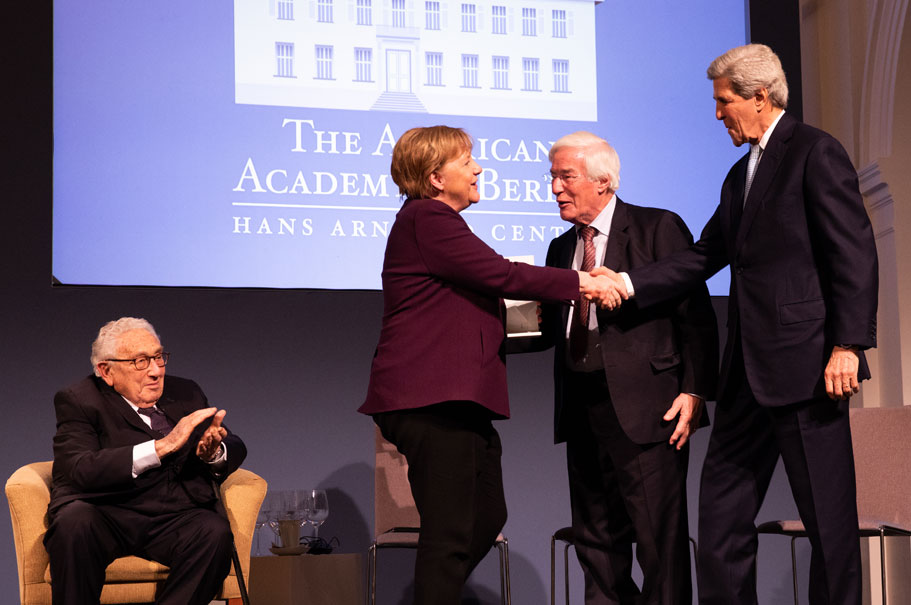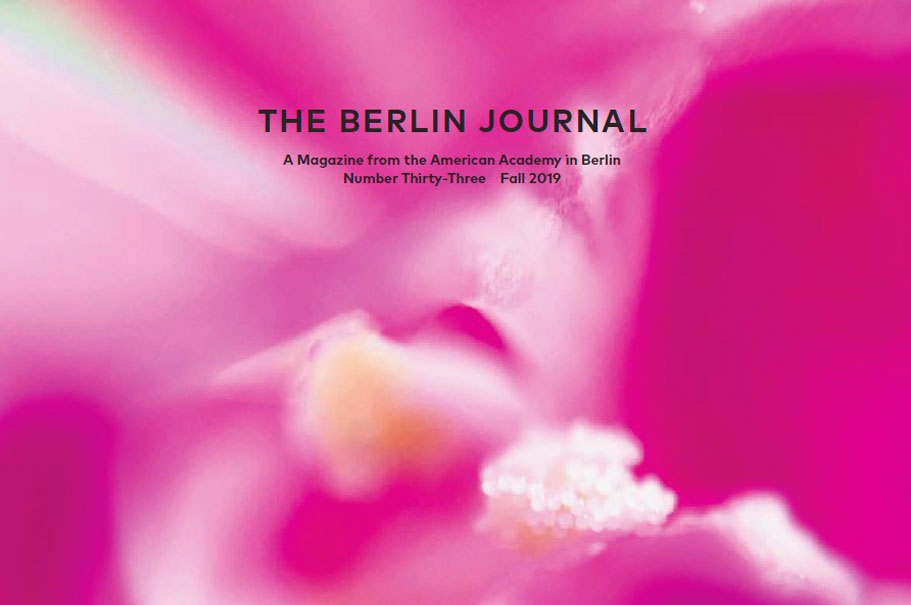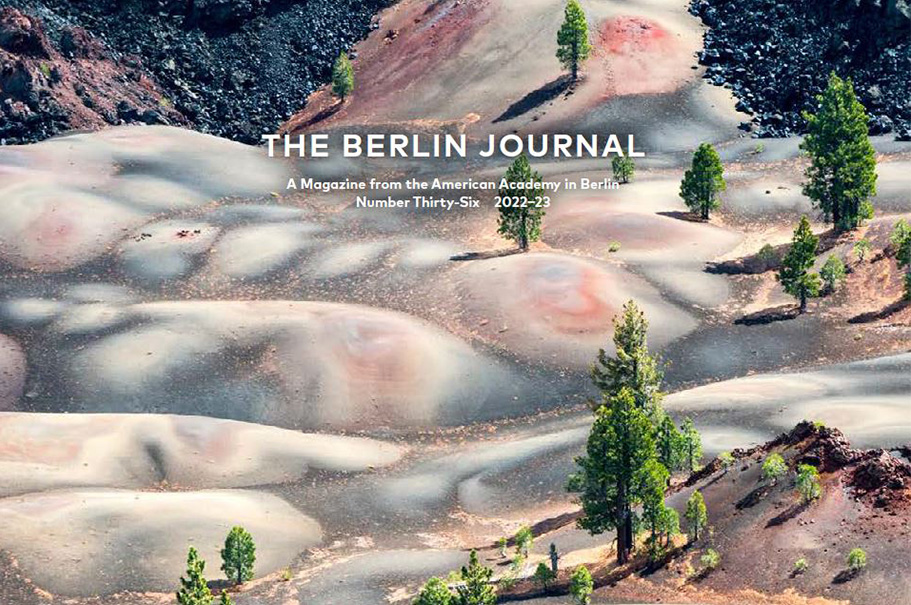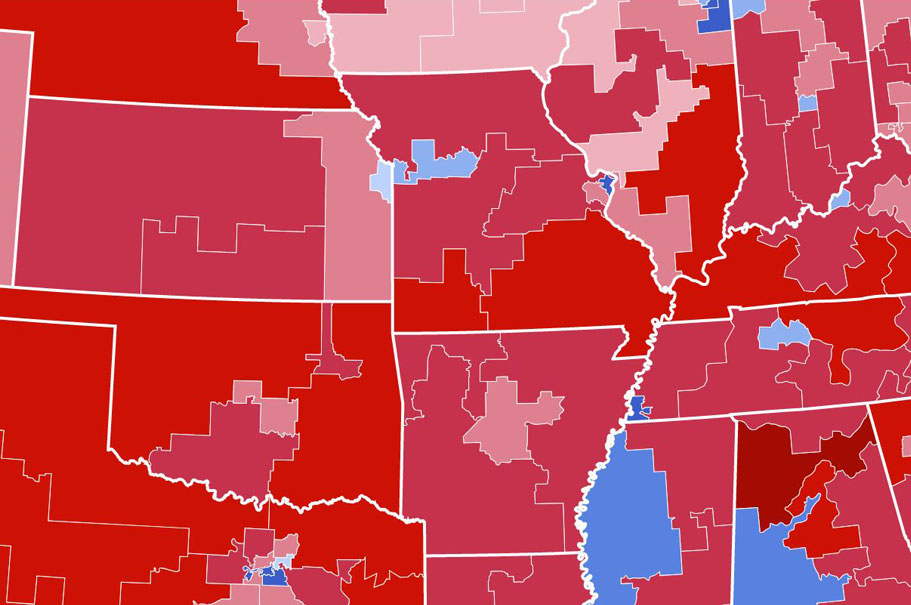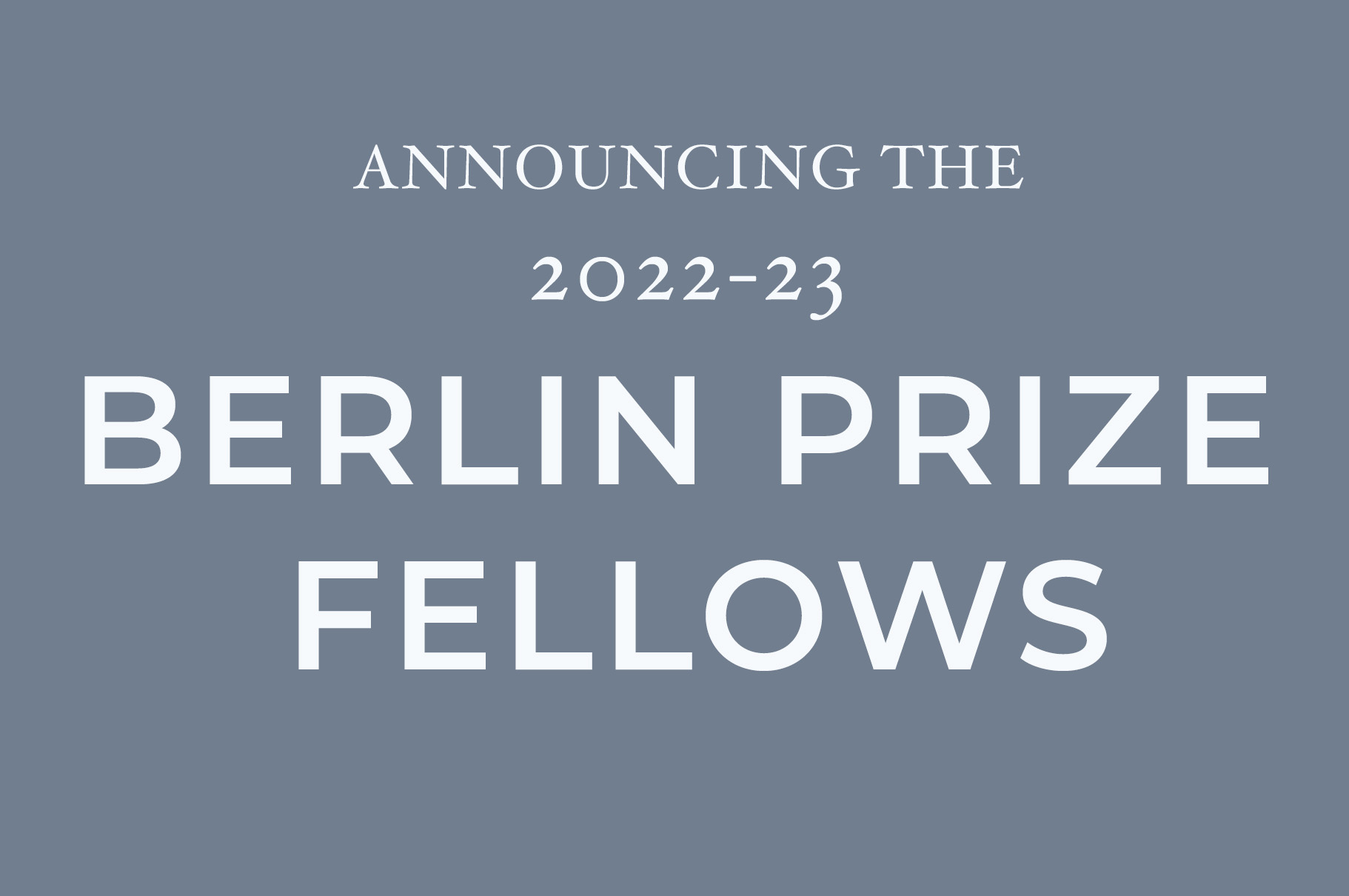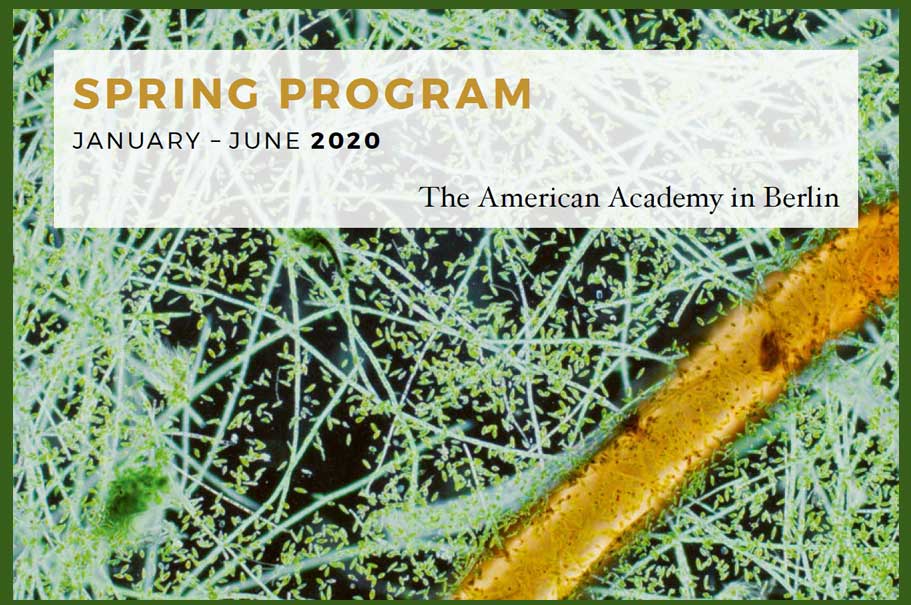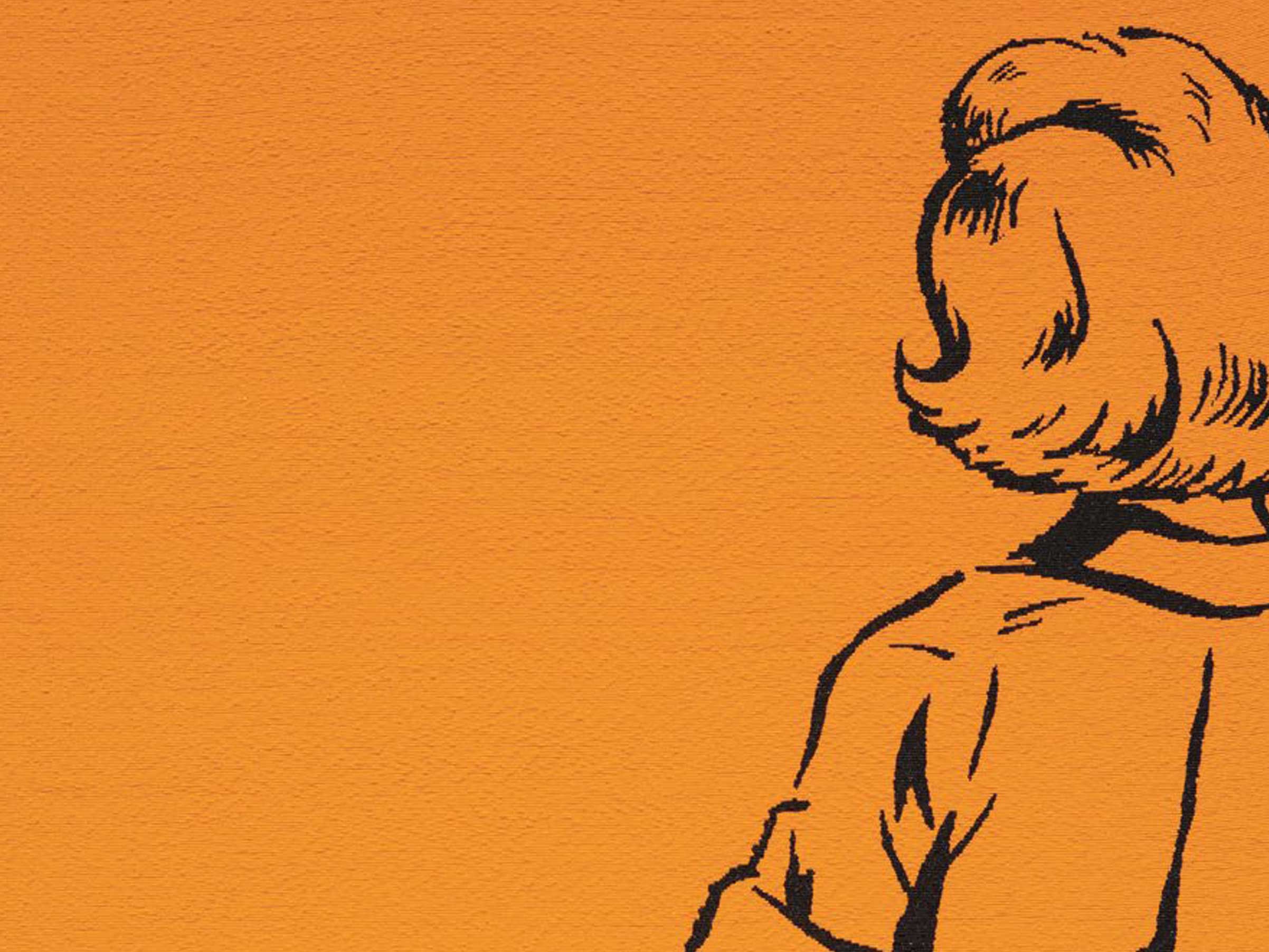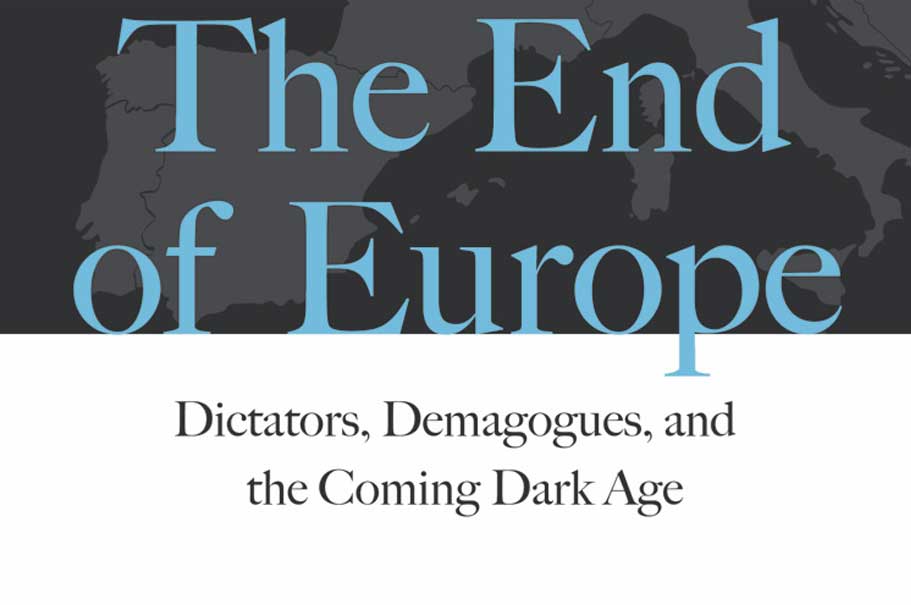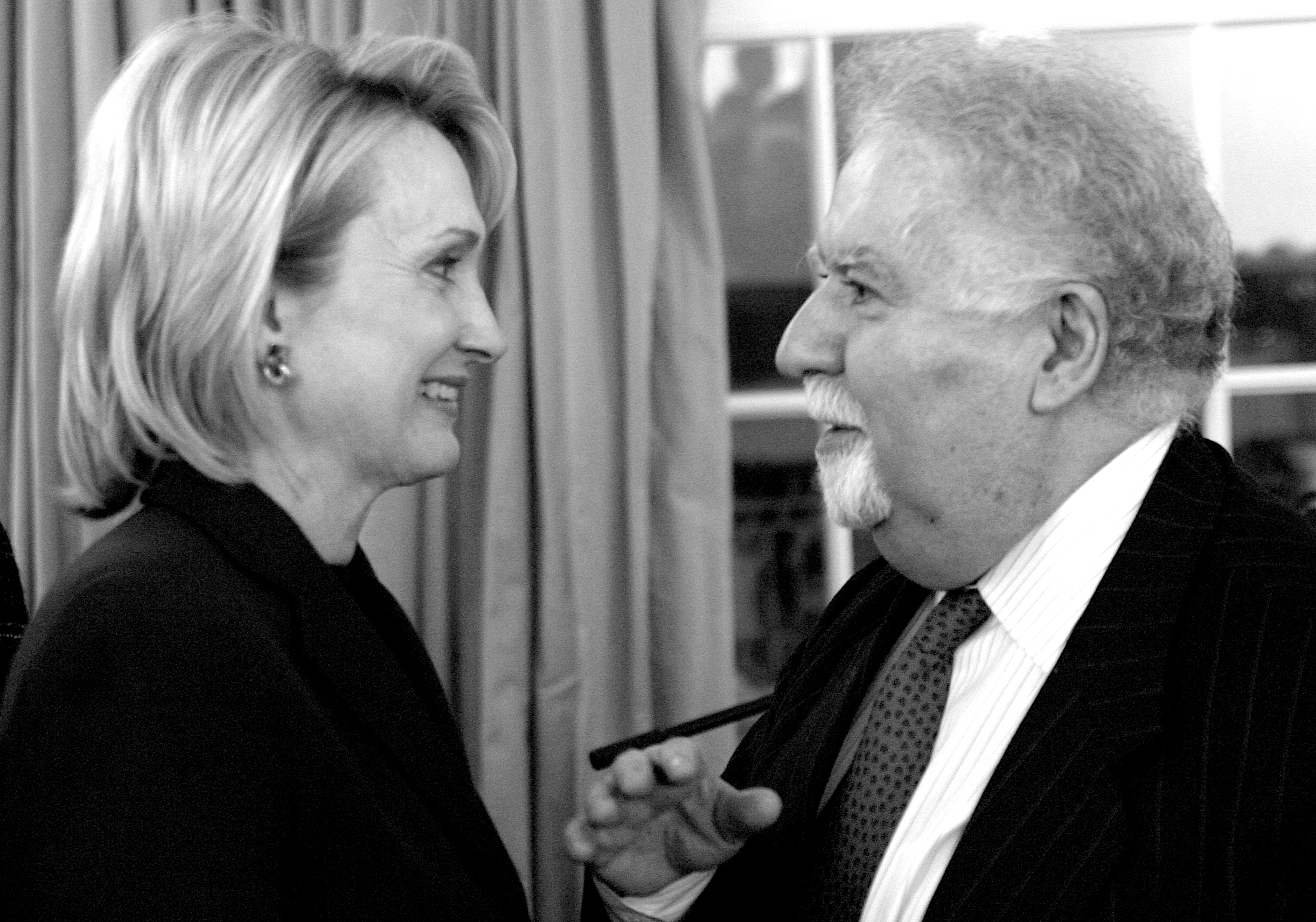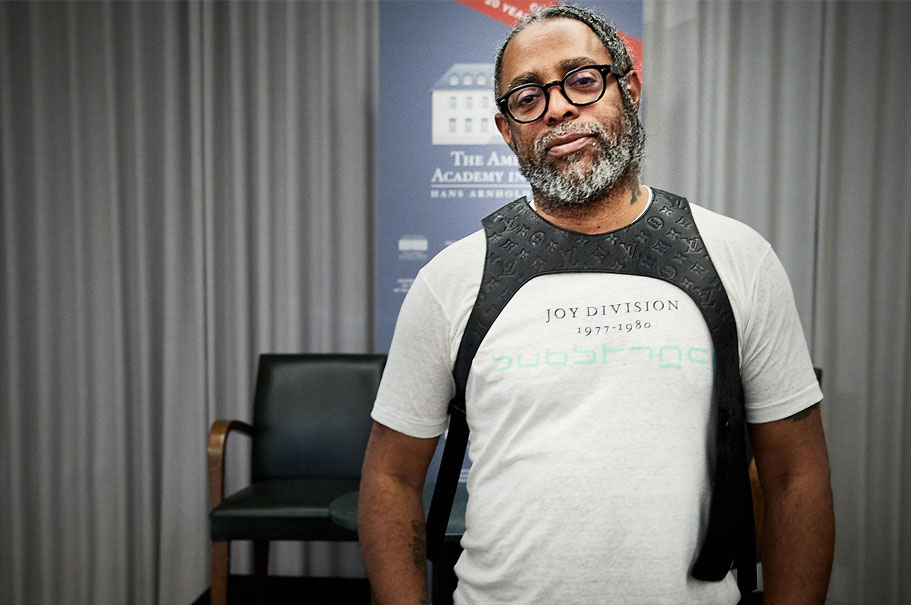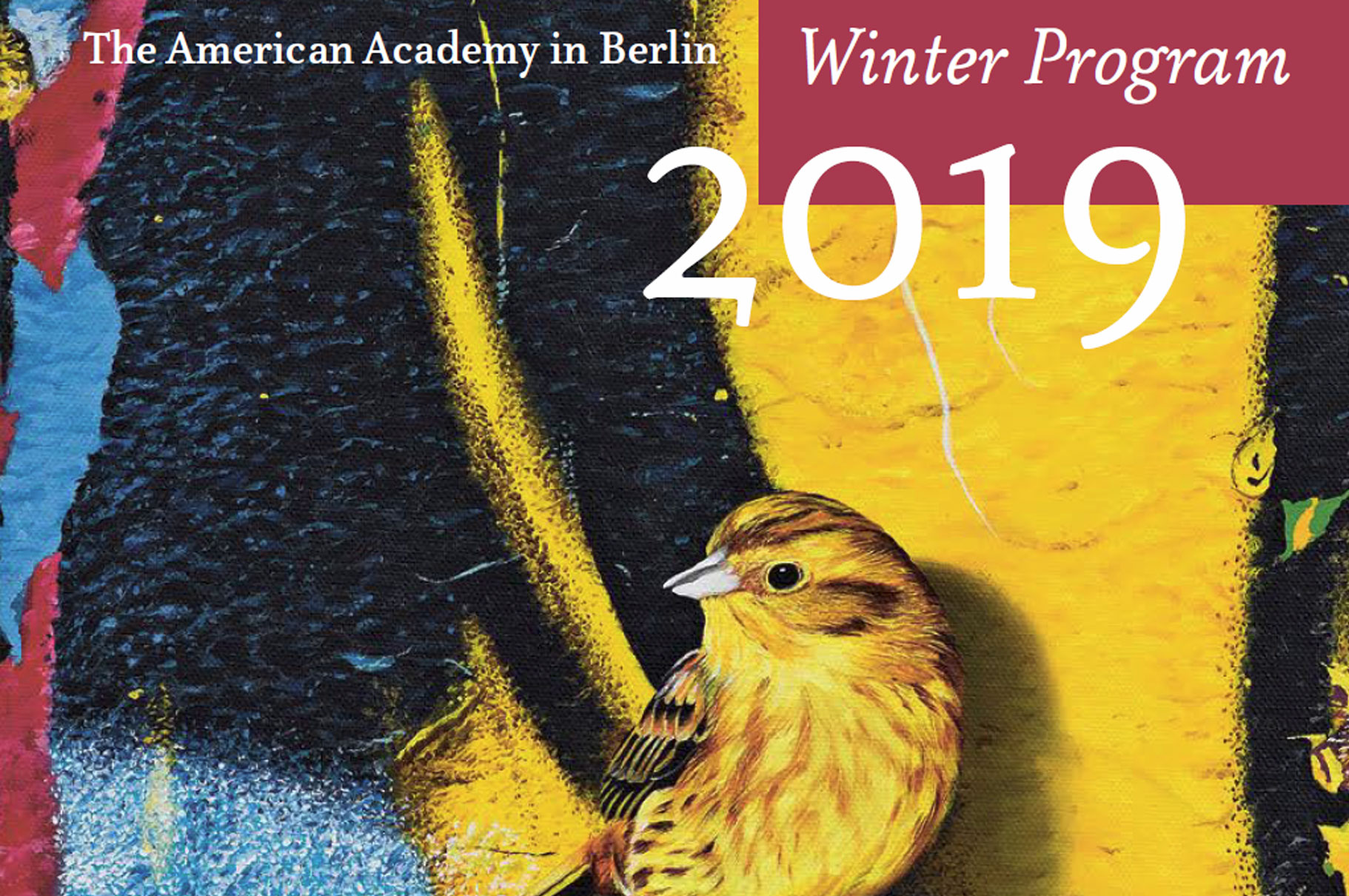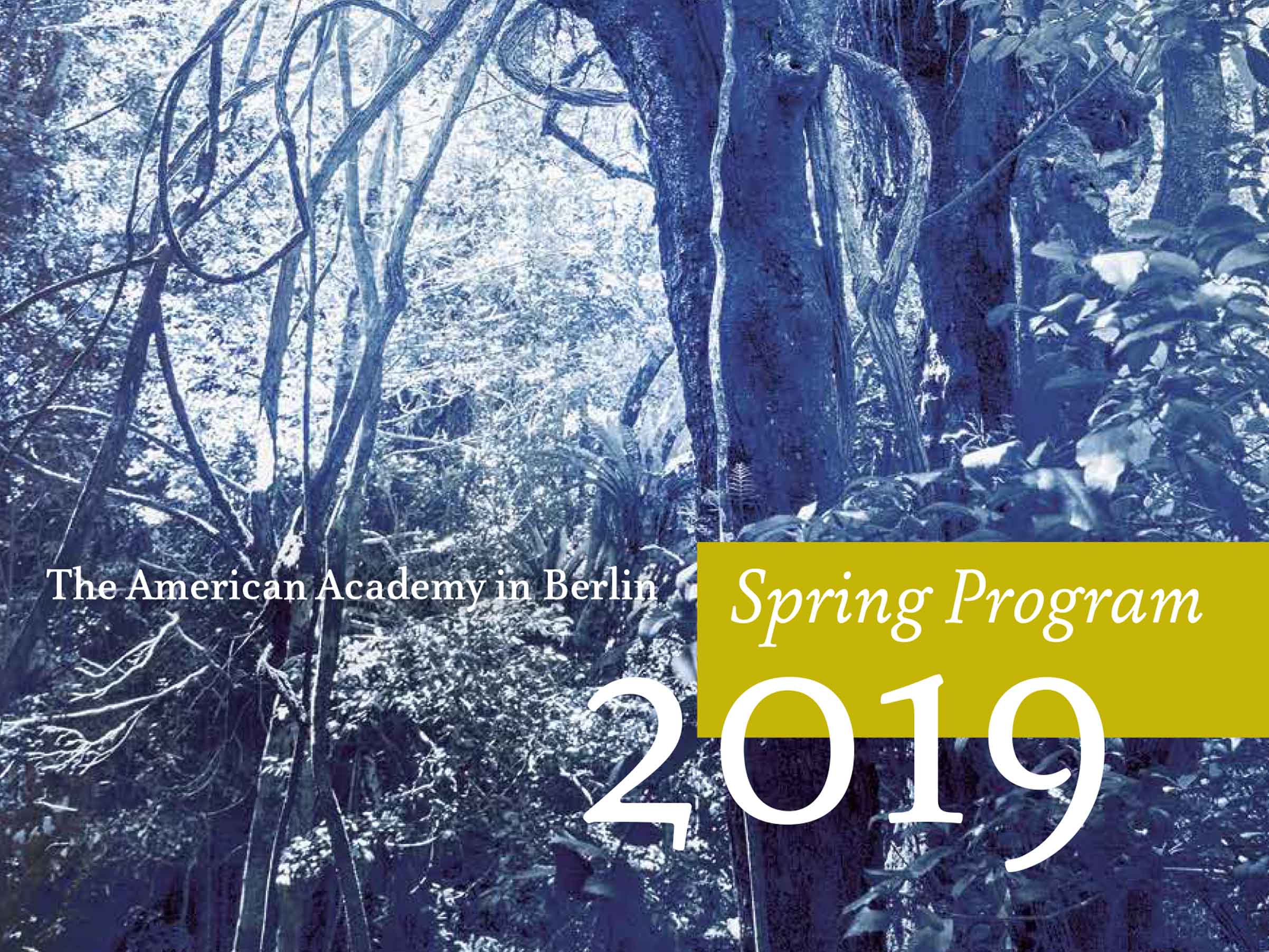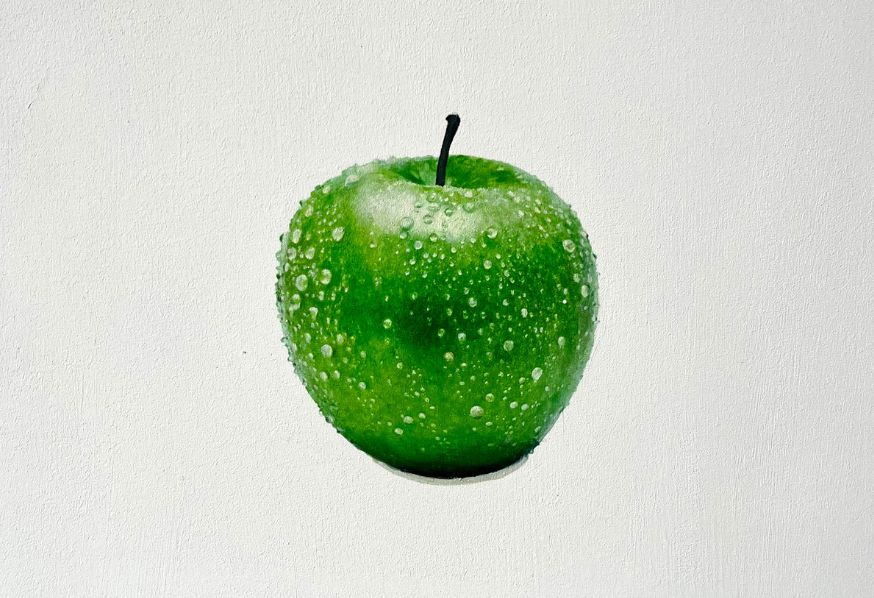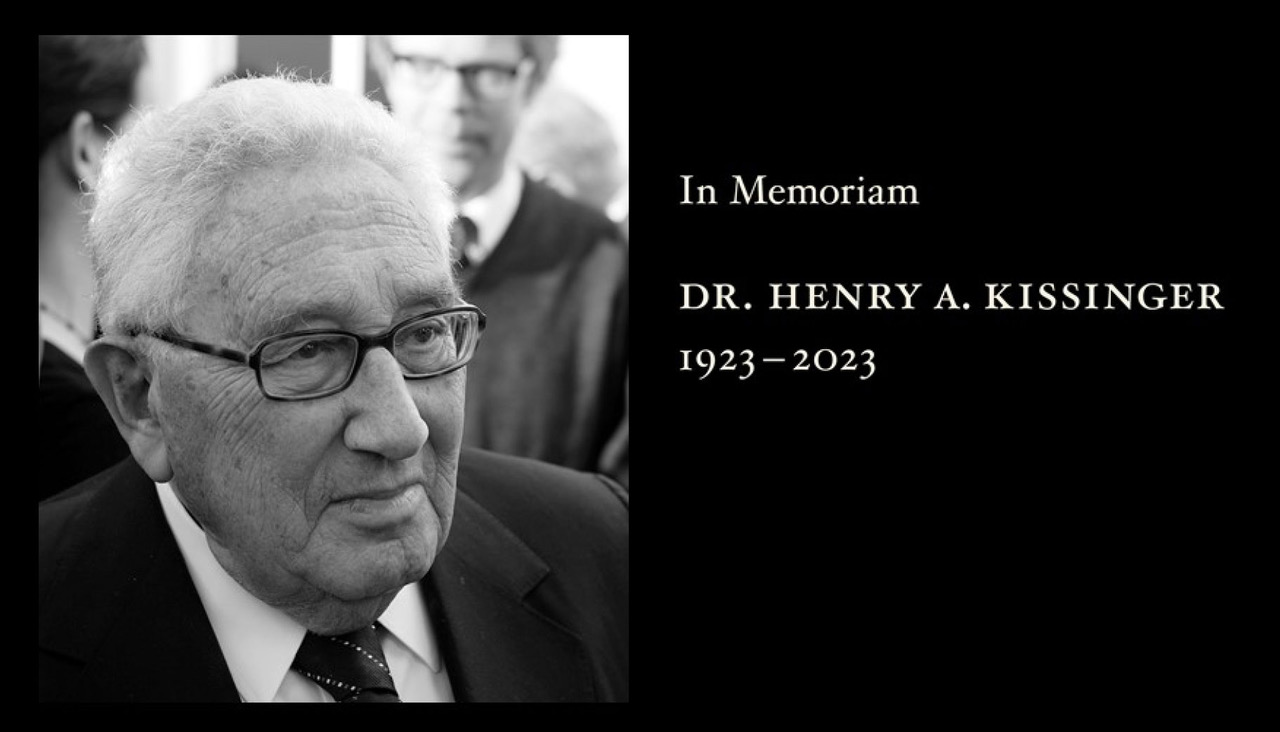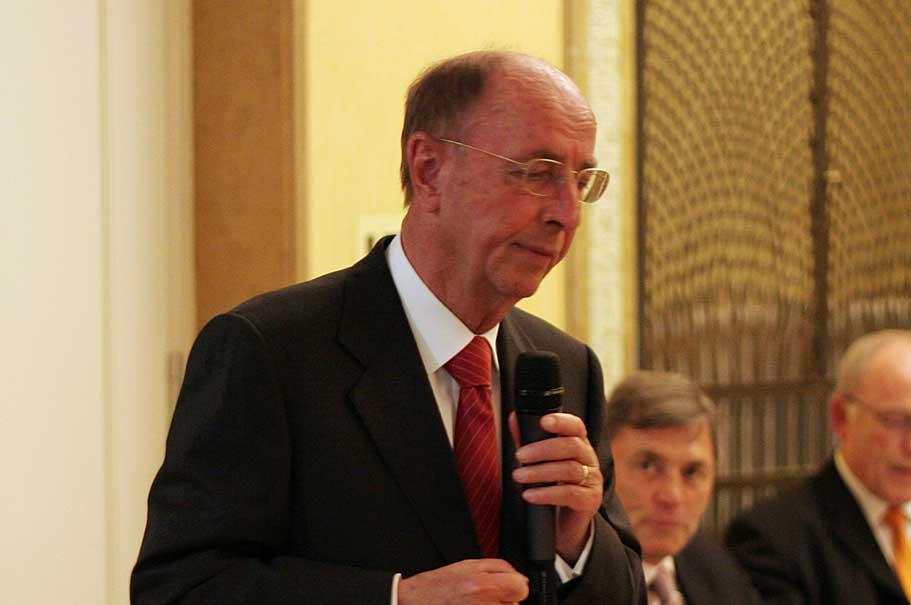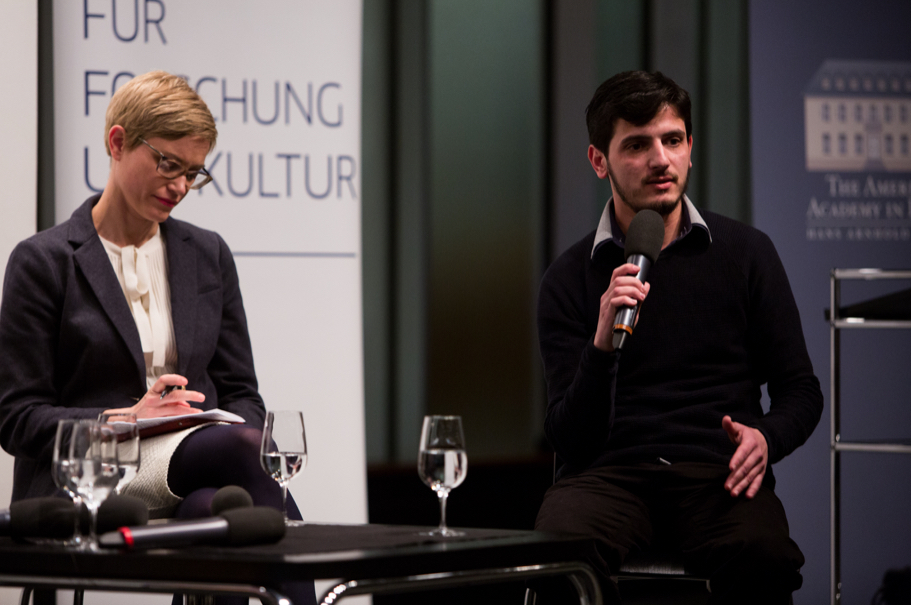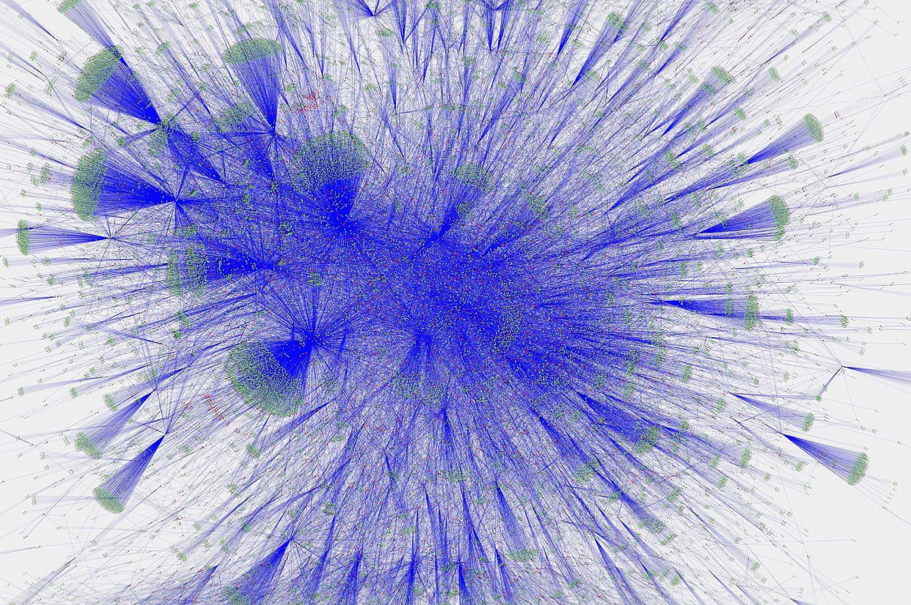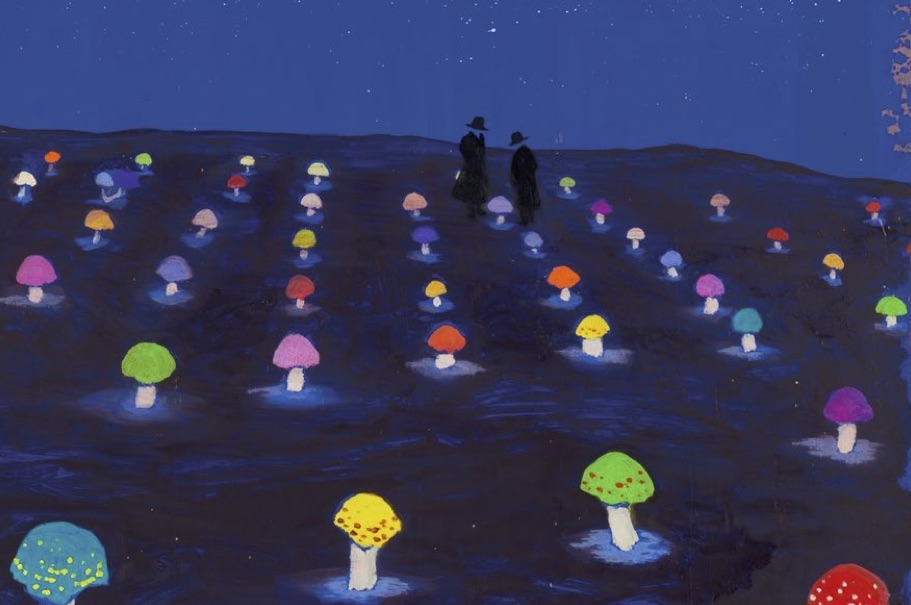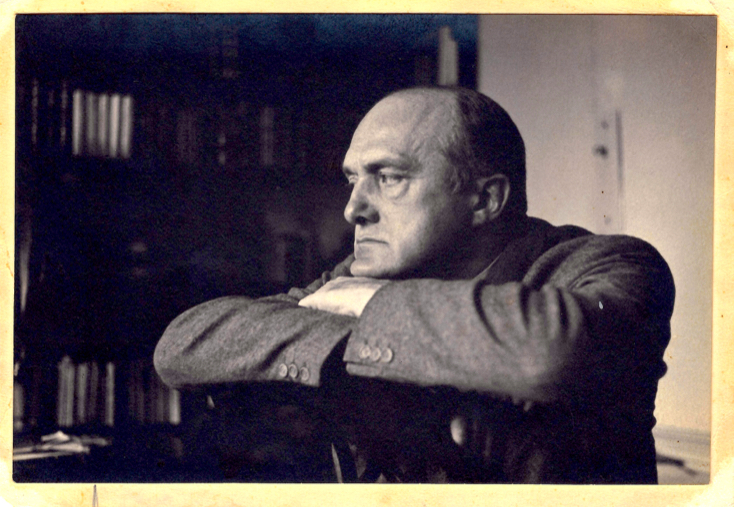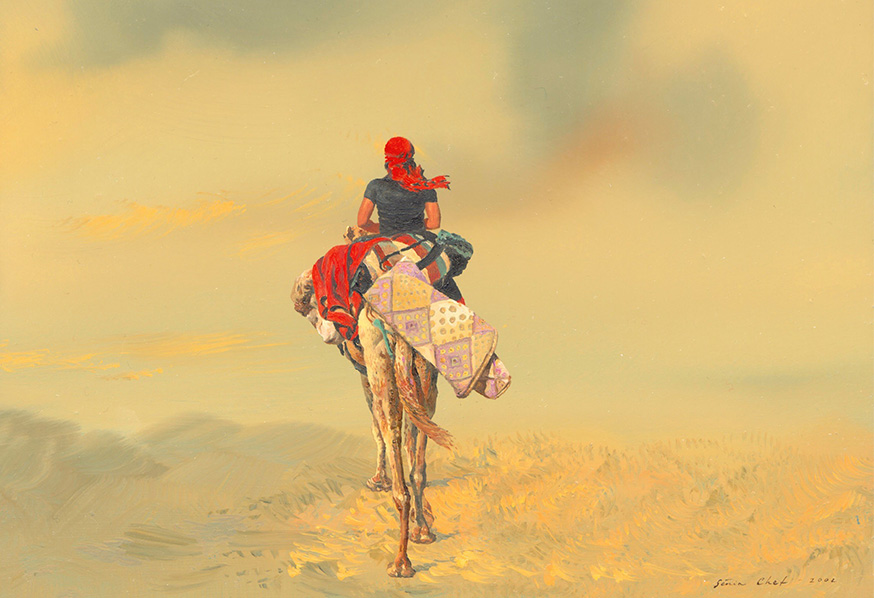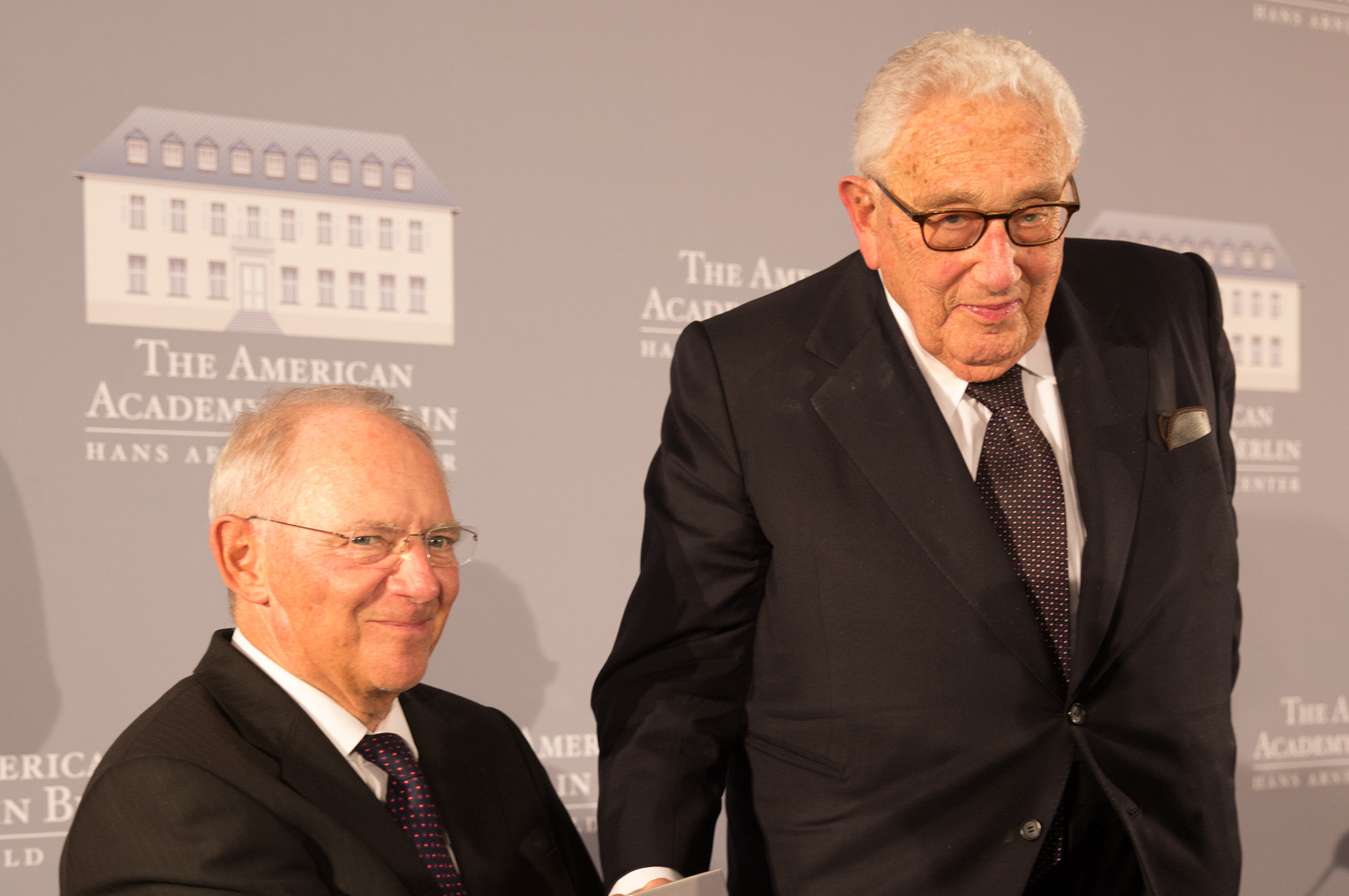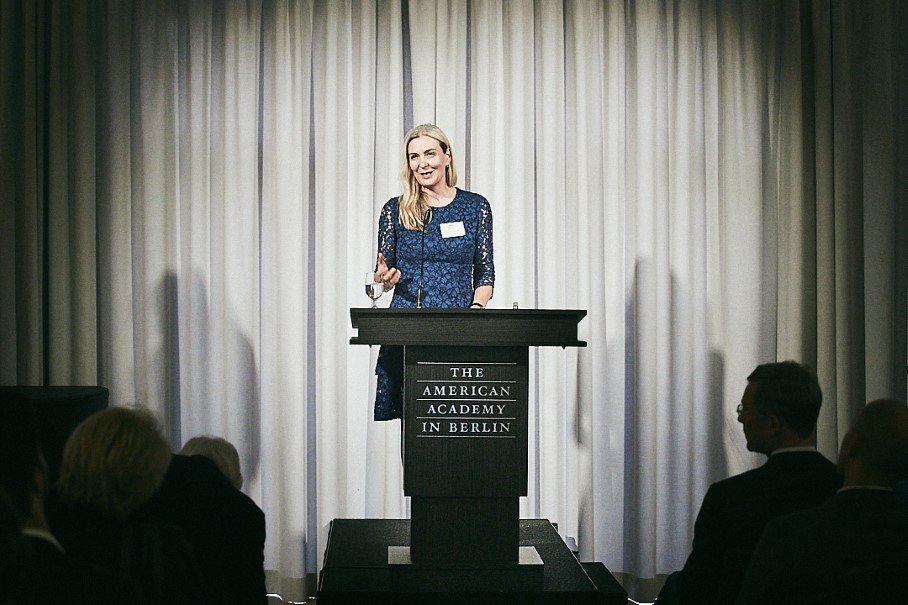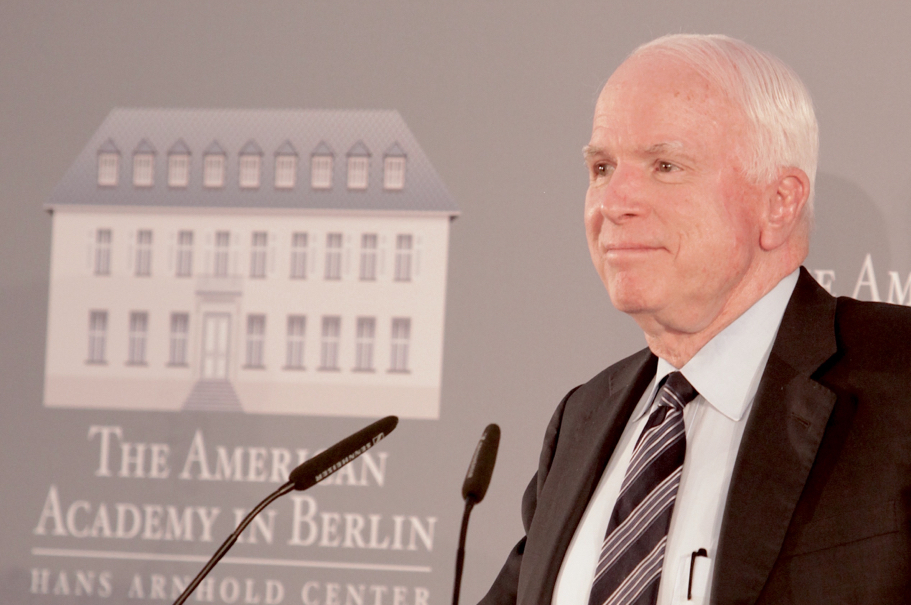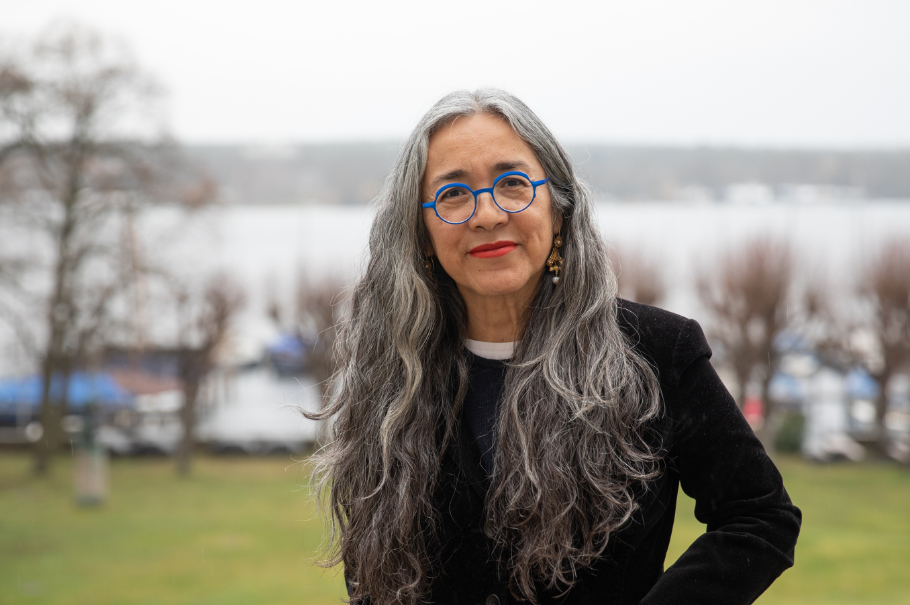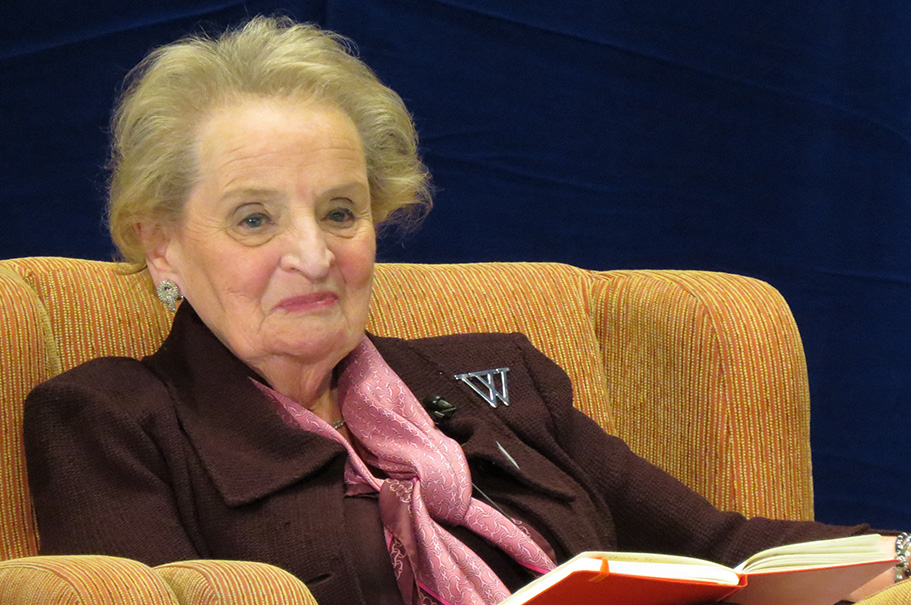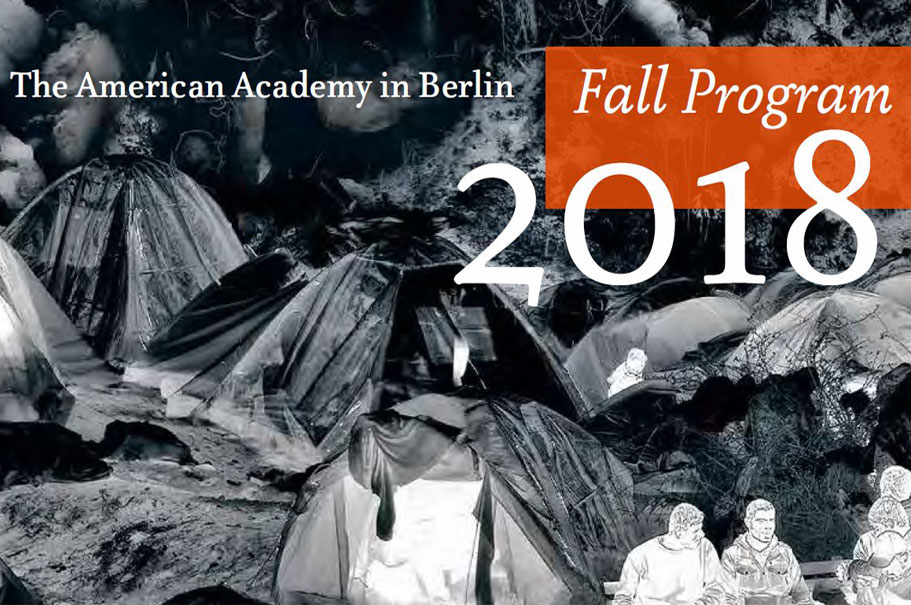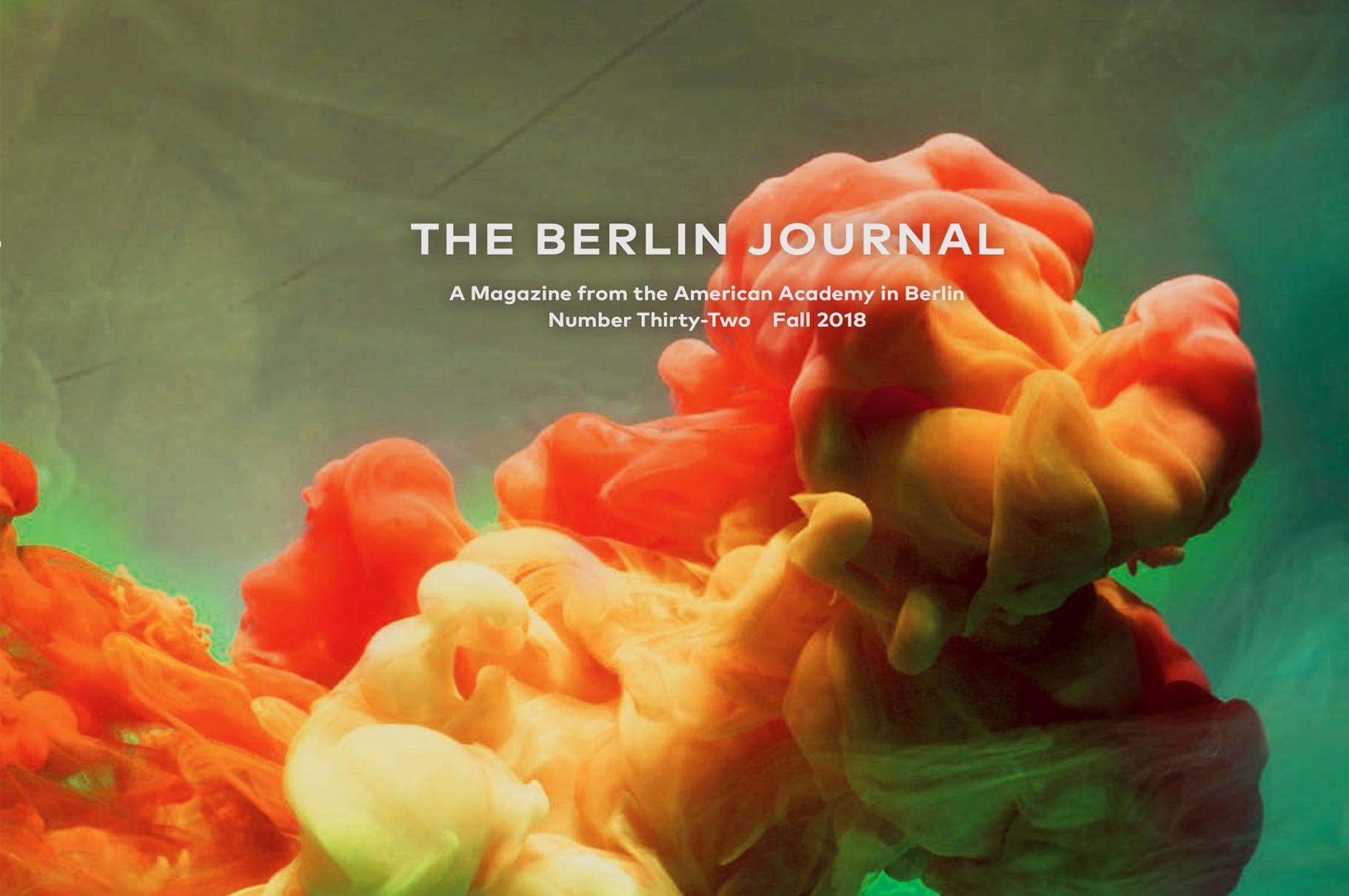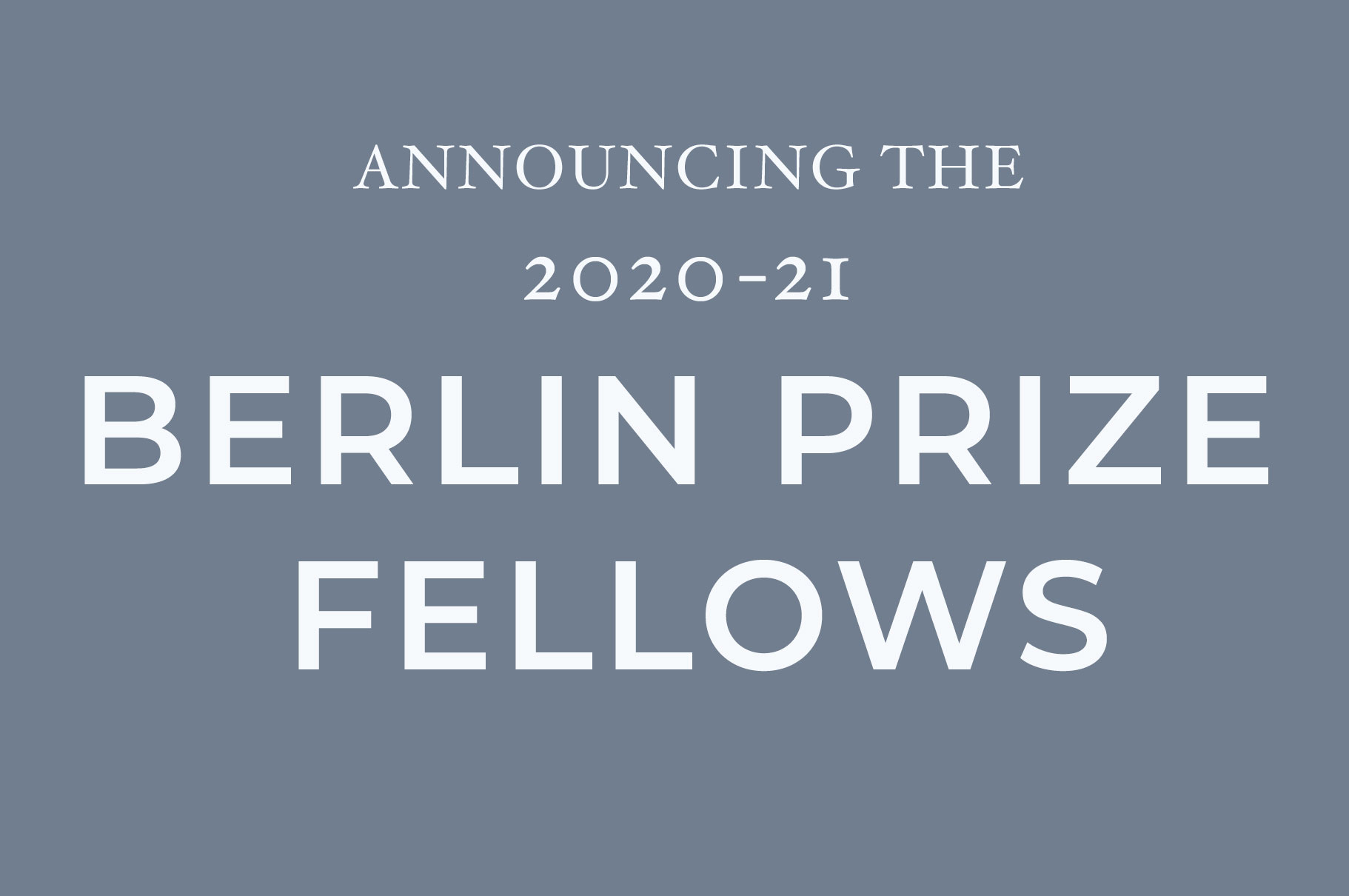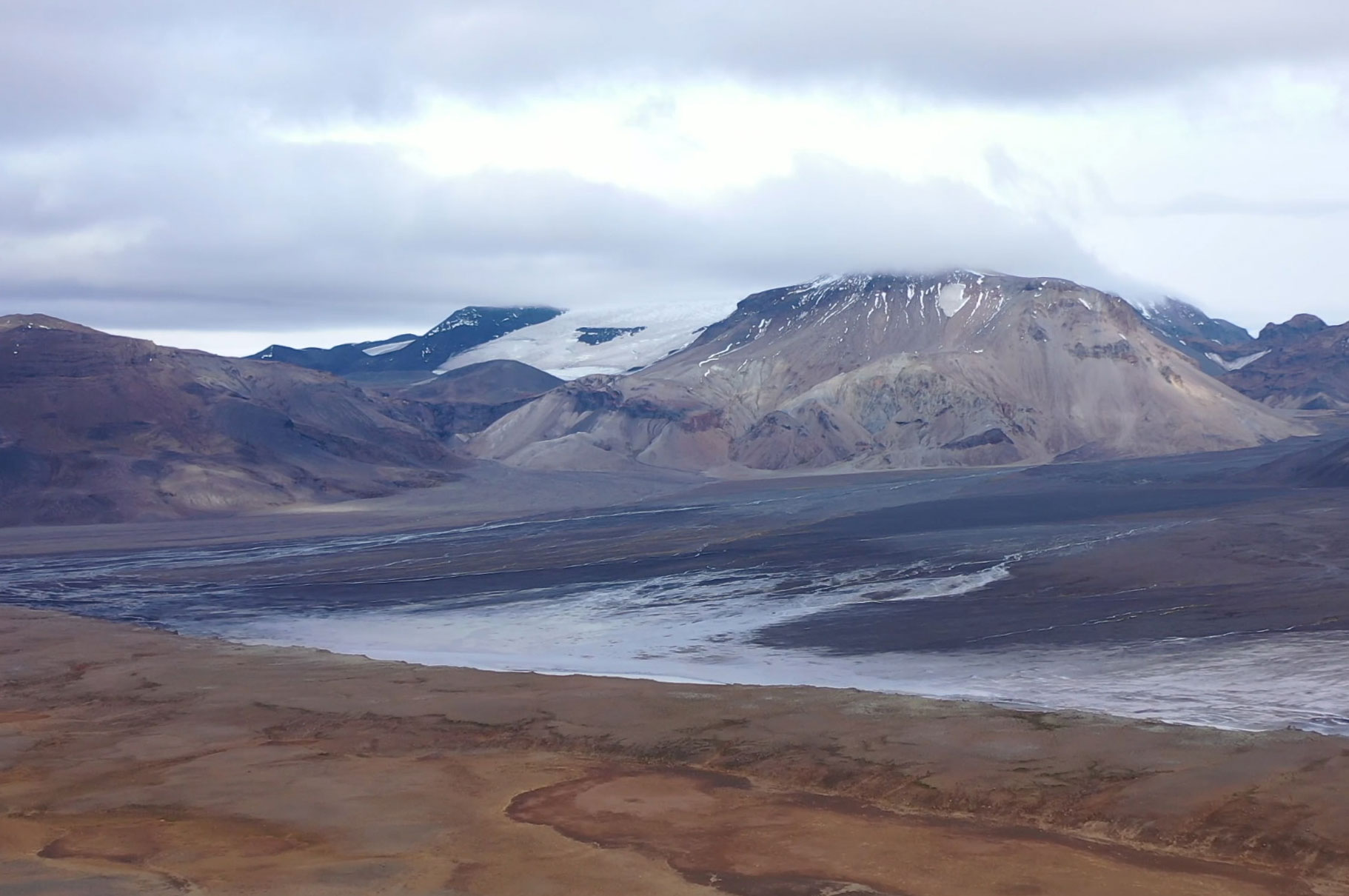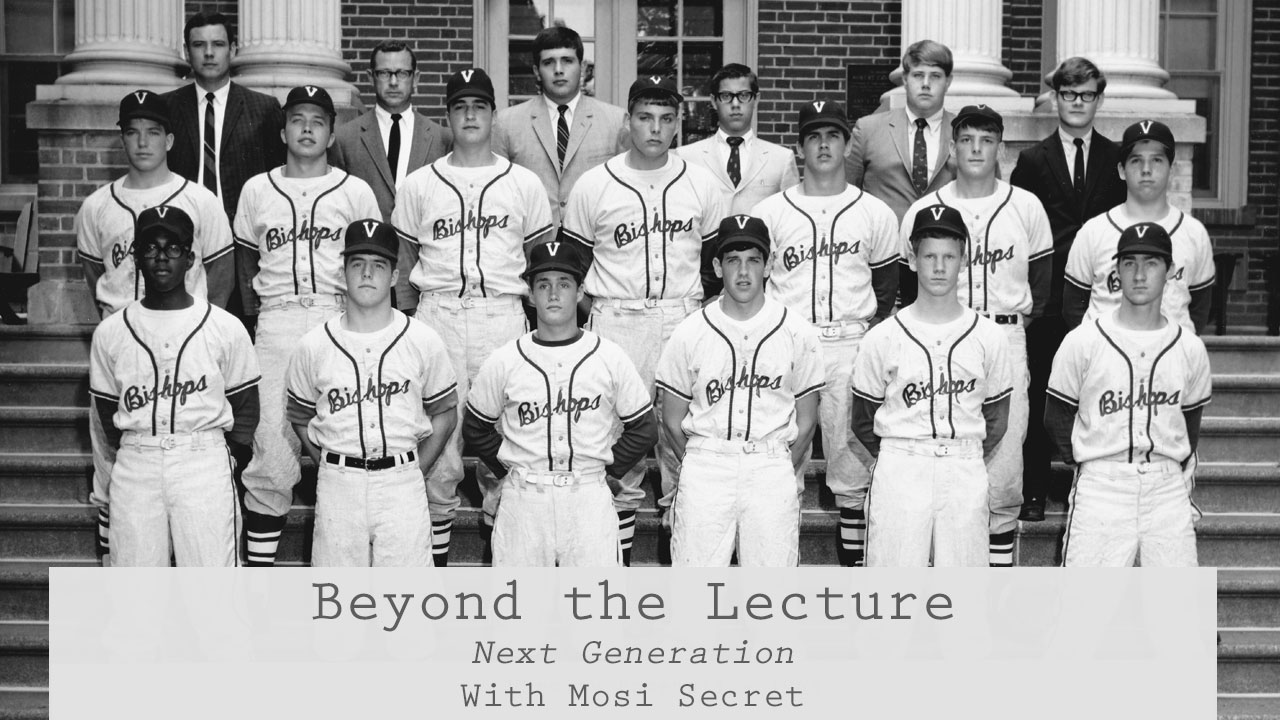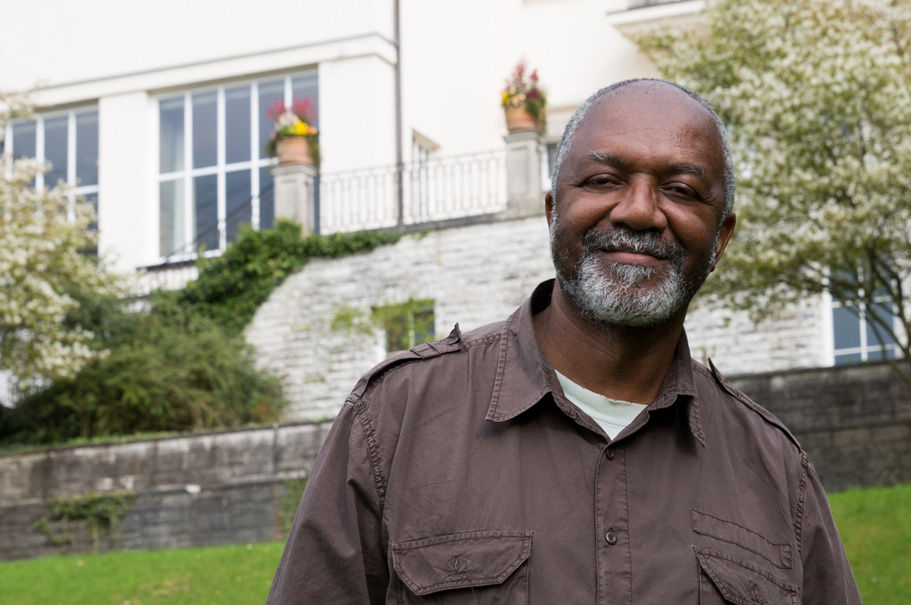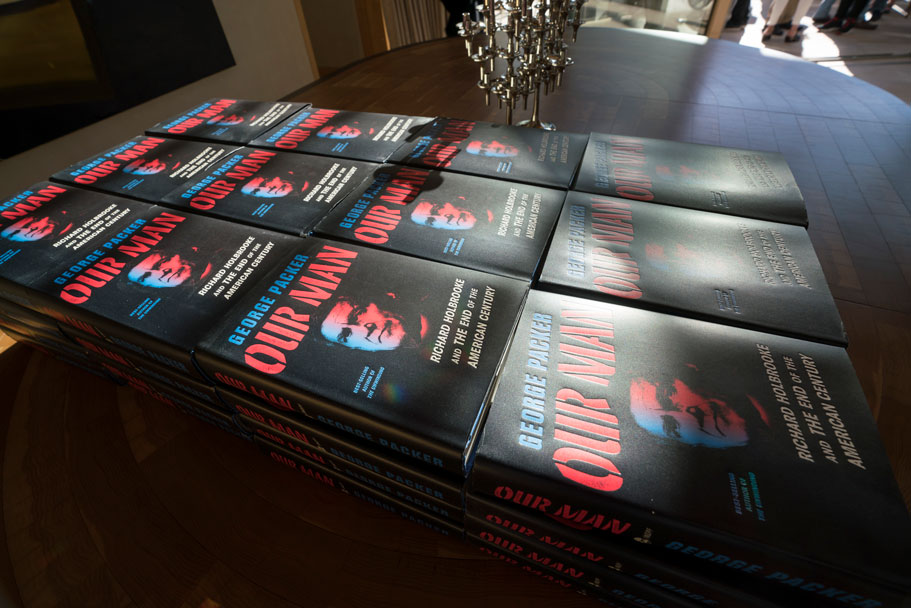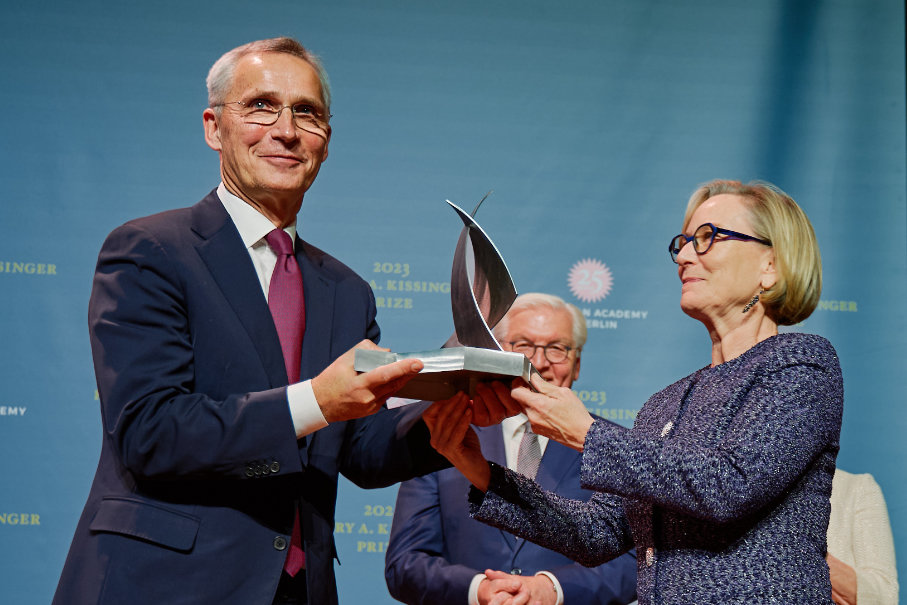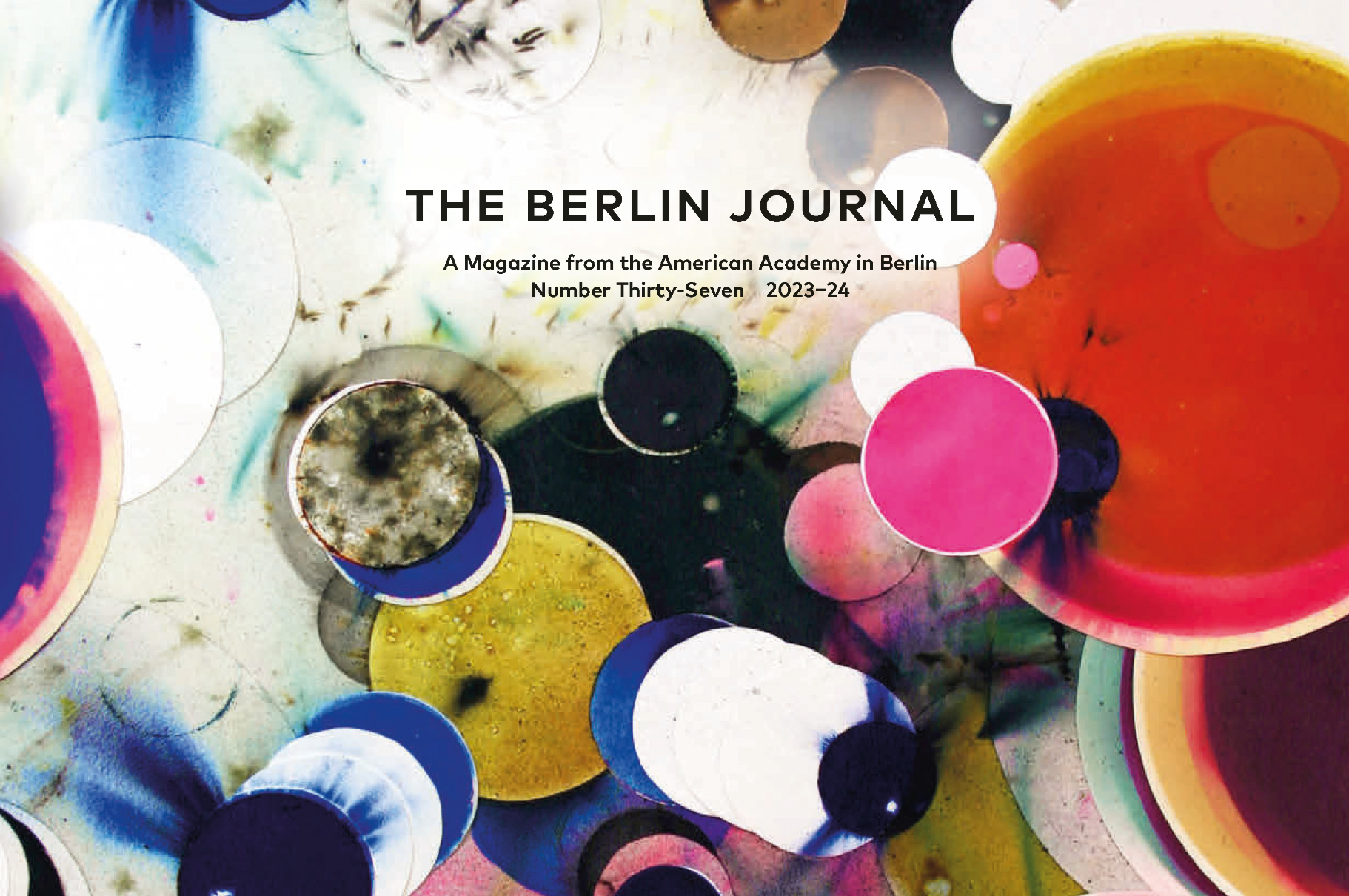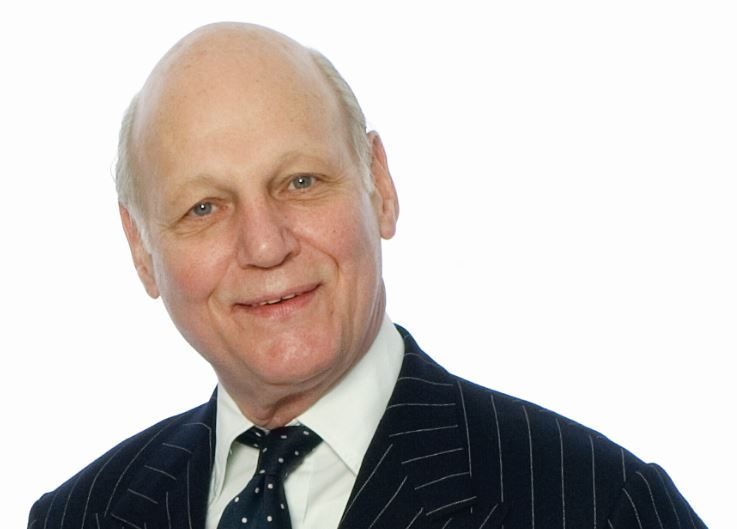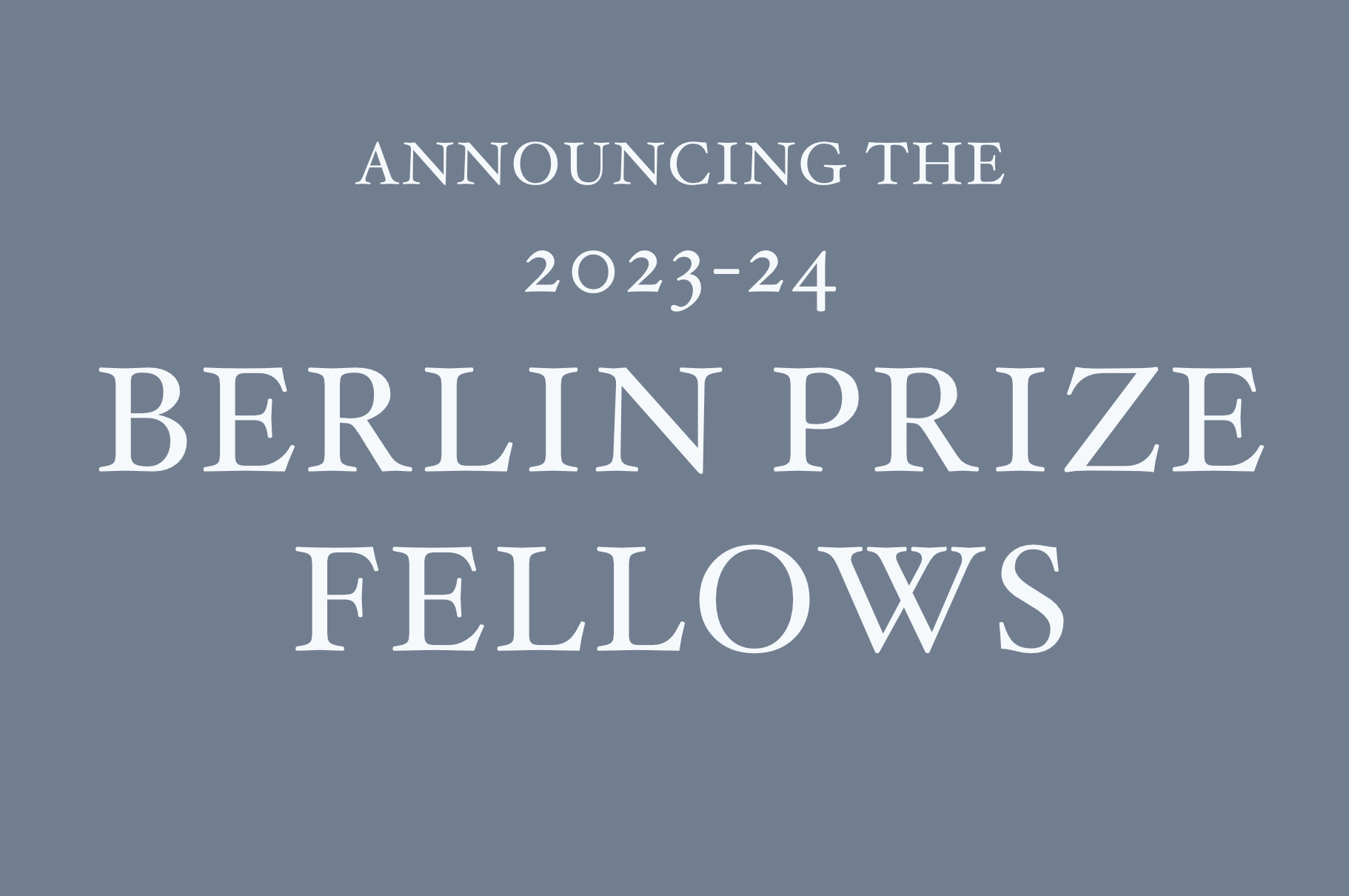
The 2023-24 Berlin Prize Fellows
BERLIN—May 15, 2023—The American Academy in Berlin has granted 26 Berlin Prizes for fall 2023 and spring 2024, a record number of awards, with two new fellowships on the roster: the Carol Kahn Strauss Fellowship in Jewish Studies and the American Political Economy Fellowship. The Berlin Prize is awarded annually to US-based scholars, writers, composers, and artists who represent the highest standards of excellence in their fields, from the humanities and social sciences to journalism, public policy, fiction, the visual arts, and music composition. Chosen by an independent selection committee, the 2023-24 class of fellows will pursue a wide array of scholarly and artistic projects, each summarized below.
Fall 2023 Berlin Prize Fellows
Camila Agosto
Composer, Columbia University
Agosto’s recent work has been inspired by linked concepts of memory, perception, psychoacoustics in sound and music, and experiences with PTSD, trauma, and dementia, as she seeks to understand the ways in which music and the arts are linked with memory and embodied experiences. At the Academy, Agosto will develop new works, including electroacoustic pieces for mixed instrumentation that incorporate her research in somatic experiences and sound healing, custom instrument design and fabrication, and eventual VR installation.
A.K. Burns
Artist; Associate Professor of Art, City University of New York
Burns will be researching and developing new video work and related sculptures.
Mariana P. Candido
Professor of History, Emory University
During her time at the Academy, Candido will work on her new book project, “Beyond Queens and Captives: Women in Angola, 1500-1880s.” Moving away from the binary understanding of African women as queens or captives, Candido’s study examines their multiple roles as leaders and commoners, free and enslaved, during the era of the slave trade and European imperialism.
Holly Case
Professor of History, Brown University
The day Russia invaded Ukraine, Vladimir Putin predicted that Ukraine and its supporters in the West would “kill innocent people just as members of the punitive units of Ukrainian nationalists and Hitler’s accomplices did during the Great Patriotic War.” He assumed that the historical trajectory of Ukrainian independence was tainted by nationalist collaboration with Nazi Germany during the Second World War and could never come clean. Tracing such “tainted” structures and ideas across time is a common feature of historical inquiry, but one fraught with potential for manipulation. Case’s Academy project, “Tracing Taint,” seeks to derive methodological lessons from an in-depth exploration of symbolic WWII politics as they relate to the war in Ukraine and the 1990s wars in Yugoslavia, alongside taint-tracing claims as they relate to the WWII history of cybernetics and the problem of “dirty data” in computer science and machine learning.
Jorge Coronado
Professor of Modern Latin American and Andean Literatures and Cultures, Northwestern University
At the Academy, Coronado will research a body of texts authored by Indigenous peoples in Latin America in the early twentieth century. By studying these overlooked texts, he seeks to demonstrate how Indigenous subjects employed and reconfigured modern ideologies such as anarchism, Marxism, and feminism alongside Native worldviews. They did so, he contends, to pronounce widely intelligible critiques of the political, economic, and social worlds they inhabited.
Michael W. Doyle
University Professor of International Affairs, Political Science, and Law, Columbia University
Doyle will be working on a revised and updated edition of Ways of War and Peace (W.W. Norton) to include new chapters on “Post-Colonial Independence and Industrial Development” (Nehru); “Third World Global Socialism” (Senghor); and “The Impact of Race and Racial Consciousness” (Biko).
Liana Finck
Cartoonist, The New Yorker; Visiting Professor of English, Barnard College
At the Academy, Finck will work on her sixth book, What to Do When (2025), a tongue-in-cheek instruction manual for living in human society. Each instruction will begin with the phrase “what to do when” and take different forms—one-liner, list, essay, diagram. Half self-help book, half poetic parody, What to Do When will offer advice on subjects ranging from how to react when your doorbell rings unexpectedly to eating a messy sandwich in public to gracefully exiting a party, among much more.
Stuart Kirsch
Professor of Anthropology, University of Michigan
While in Berlin, Kirsch will research the subject of carbon accounting, examining the assumptions, practices, and standards for monitoring greenhouse-gas emissions responsible for global climate change. His work is part of a multi-year project on the post-carbon transition.
Saira Mohamed
Professor of Law, University of California, Berkeley
International law has long treated military service members as expendable resources to be exploited by their governments. International humanitarian law and international criminal law set forth obligations of states (and non-state actors) toward civilians and adversary combatants, but governments’ treatment of their own soldiers is largely untouched by the law. In her Academy project, “Cannon Fodder: The Soldier’s Human Rights,” Mohamed will examine the durability of the idea of soldiers as resources; its relevance to legal rules on conscription and the obligation of subordinates to disobey illegal orders from superiors, among other areas; and the failure of international human rights law to adequately address the treatment of service members by the states they serve.
Andrew Moravcsik
Professor of Politics and International Affairs, Princeton University
During his time at the Academy, Moravcsik will be working on a project entitled “More Bark than Bite,” which investigates the impact of extreme-right populist parties on the foreign policies of advanced democracies.
David H. Price
Professor of Jewish Studies, Religious Studies, History, and Art History, Vanderbilt University
Price will be studying the expansion of religious toleration in Europe from roughly 1600 to the French Revolution (1789), for his book-in-progress, “Listening to Jewish Voices: The Impact of Jewish Writing on Religious Toleration and Social Justice in Early Modern Europe.”
Anne-Marie Slaughter
CEO, New America; Bert G. Kerstetter ’66 University Professor Emerita of Politics and International Affairs, Princeton University
Slaughter will be working on a project entitled “Care and Capitalism,” which asks what it would mean to value care, connection, and community equally with competition, separation, and individual success in our economic, social, and political systems, both domestically and internationally.
Mabel O. Wilson
Nancy and George Rupp Professor of Architecture, Planning, and Preservation; Professor of African American and African Diasporic Studies; Director, Institute for Research in African American Studies, Columbia University
Wilson will work on an architectural and cultural history of racial difference during the early years of the United States. Focusing on select buildings, institutions, and sites in the Mid-Atlantic region, her project explores how the emerging modern discourses of architecture, nationalism, and race influenced the creation of civic spaces from 1783 to 1858.
Spring 2024 Berlin Prize Fellows
Mark Copelovitch
Professor of Political Science and Public Affairs, University of Wisconsin – Madison
Copelovitch will be working on a new book project, “Dollar Signs: US Financial Dominance and the Future of American Power, Prosperity, and Democracy,” which explores the causes and consequences of the US dollar’s continued dominance in global finance and the international monetary system. Despite frequent predictions to the contrary, dollar hegemony will persist for many decades, in large part because none of the supposed rising challengers—including the euro and renminbi—meet the economic or political requirements to supplant the dollar. This creates opportunities for more ambitious US economic policy at home and has major global implications for how we understand the rise of China and prospects for future transatlantic cooperation.
Brian Evenson
Writer; Professor of Critical Studies, California Institute of the Arts
Evenson’s Academy book project, “Handbook for a Future Revolution,” expands on the investigation of schizophrenia, violence, and religion found in his 2005 novel The Open Curtain, exploring the collision of Mormon ideas and ideals with European culture.
Albert Hofman
Stephen B. Kay Family Professor of Public Health and Clinical Epidemiology, T.H. Chan School of Public Health, Harvard University
At the Academy, Hofman plans to explore the reasons why major epidemics, in particular of chronic diseases, are often recognized only after a long delay, and why the early response to infectious disease epidemics is often wrong. In other words, he aims to examine why epidemiologists are so bad at epidemics.
Heidi Julavits
Writer; Associate Professor of Writing, Columbia University
In her nonfiction project “Altitude Sickness,” Julavits investigates how humans interact with nature as land artists, tourists, educators, cultural critics, and adventurers. The book weaves together ideas and stories such as the recently discovered neurological findings that a person’s life does, in fact, “flash before their eyes” right before death, with the joint suicide of an old couple on a remote Maine peninsula, and a compilation of American avalanche accidents—all as vehicles to wonder if, and how, people will develop more socially and legally acceptable ways to die, especially given the looming threat of human mass-extinction.
Noam Lupu
Associate Professor of Political Science, Vanderbilt University
At the Academy, Lupu will be completing a coauthored book entitled Children of Violence: Victims in the Shadow of Conflict, which explores how experiences of violence shape the political identities of victims and their descendants in order to understand what kinds of political violence have lasting intergenerational effects.
Mark Fathi Massoud
Professor of Politics and Director of Legal Studies, University of California, Santa Cruz
Some US elected officials have labeled shari‘a, commonly translated as Islamic law, as evil. They have introduced more than 200 anti-shari‘a bills across the country. At the Academy, Massoud will be studying the history of religious exclusion in the United States and the ways that Muslims turn to shari’a as a guide to ethical living and a source of democratic values. This lived experience stands in contrast to the monolithic projection of shari‘a as a threat to Western political liberalism and the rule of law.
Michael Meyer
Writer; Professor of English, University of Pittsburgh
In Berlin, Meyer will work on a book project entitled “Taiwan Rising,” a biography of the island combining archival research with immersive reporting. Focusing on Taiwanese history before, during, and after colonial and Chinese arrivals, Meyer explores how contemporary Taiwanese see their palimpsest home, and which historical narratives and characters are today commemorated, ignored, or forgotten.
Leigh Raiford
Professor of African American Studies, University of California, Berkeley
Raiford will be completing a book entitled When Home is a Photograph: Blackness and Belonging in the World, (under contract with Duke) which examines how a handful of Black American artists and activists has used photography to imagine and visualize home in the world. While in Berlin, Raiford will work with images of the Black feminist poet Audre Lorde made by Dagmar Schultz and housed at the Freie Universität’s JFK Institute for North American Studies.
Samantha Schnee
Translator; Founding Editor, Words Without Borders
At the Academy, Schnee will work with Spanish author Irati Elorrieta on the English-language translation of Winter Lights, a polyphonic and cinematic novel set in Berlin that illustrates how the fabric of this cosmopolitan metropolis is woven together each day by the city’s inhabitants.
James Shapiro
Larry Miller Professor of English and Comparative Literature, Columbia University
While in Berlin, Shapiro will be completing Playbook: The Creation and Demise of a Theater for All Americans (under contract with Penguin and Faber). The book explores the rise and fall of the Federal Theatre, whose productions were seen by thirty million Americans from its creation in 1935 until 1939, when the first House un-American Committee targeted its plays as “un-American,” leading to its defunding—an early salvo in the country’s culture wars.
Johannes von Moltke
Professor of Germanic Languages and Literatures and Film, TV and Media, University of Michigan
In Berlin, von Moltke will be working on a project on right-wing “metapolitics,” or the ways in which the new right on both sides of the Atlantic wages cultural wars to advance authoritarian populist agendas. He is particularly interested in understanding the right-wing appropriation and weaponization of cultural formations previously associated with a progressive, countercultural left—from identity politics to aesthetic and media activism, from social critique to the Marxist notion of “metapolitics” itself. How, in effect, does the new right mobilize democratic cultures against democracy?
Adam D. Weinberg
Alice Pratt Brown Director, Whitney Museum of American Art
Weinberg will be researching and drafting the first volume devoted to artist-conceived and designed “sacred spaces”—chapels, churches, synagogues, Quaker meeting houses, and a host of non-denominational indoor and outdoor meditation sites—created in the twentieth and twenty-first centuries. These range from chapels by historical figures such as Henri Matisse, Jean Cocteau, José Orozco, Fujita, Mark Rothko, Sol LeWitt, Ellsworth Kelly and Louise Bourgeois to projects by living artists including Frank Stella, James Turrell, Anish Kapoor, Theaster Gates, Maya Lin, Ellen Harvey, Rodney McMillian, and Laura Owens.
Margaret Weir
Wilson Professor of International and Public Affairs and Political Science, Brown University
While in Berlin, Weir will be completing her book The New Metropolis: Political Power and Spatial Inequality in Twenty-First Century America. With a focus on Chicago, Atlanta, and Houston, it examines the political conflicts that have defined new patterns of exclusion and opportunity in the American metropolis over the past three decades. It investigates the two key movements driving these politics—one that erects new barriers to opportunity and another that presses for a more connected and expansive public domain.

